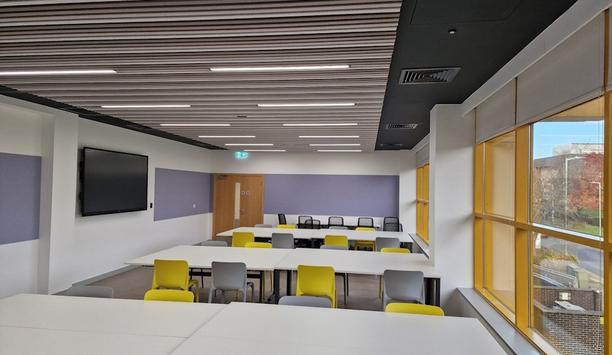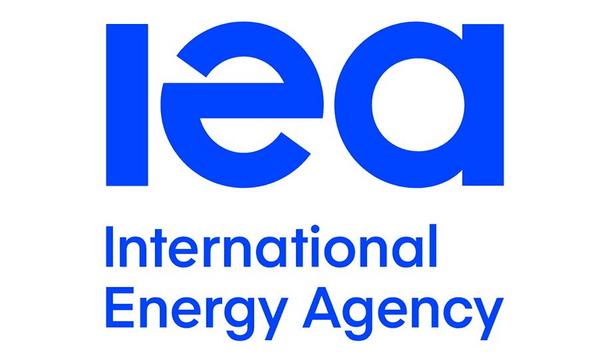Everything seems to be going electric - It started with the toothbrushes, then cars and now increasingly, heating. GDHV (Glen Dimplex Heating & Ventilation/ Glen Dimplex UK Limited) speaks a lot about the electrification of heat, but what does that really mean?
Around 90% of households in the United Kingdom (UK) use fossil fuels, such as gas and oil, to heat their homes and hot water.
Issues with use of fossil fuels
Another factor forced to consider today is that fossil fuels are a finite resource
The issue with fossil fuels is that they are very high carbon and therefore, emit harmful greenhouse (GHG) gases when burned. These gases, such as carbon dioxide (CO2), enter and trap heat in the atmosphere, thereby creating a greenhouse effect, which ultimately leads to global warming.
Another factor forced to consider today is that fossil fuels are a finite resource - some estimates predict that the world could globally run out of oil, coal and natural gas by 2060.
But, irrespective of how long the fossil resources may last, there is a need to steadily reduce the dependence on fossil fuels and this is where electricity enters the equation. This article shares just a few of the many advantages of electricity, as a viable replacement for fossil fuels and considers some of the potential challenges.
Electricity is good
An immediate advantage to switching to electricity is that it could be much more time and cost-effective than other potential alternatives – much of the basic infrastructure that needs to use electricity is already in place.
Adapting it for electricity isn’t the only option, however – other alternatives for fossil fuels, such as hydrogen can also make use of what is already in place. But, whether it is for electricity, hydrogen or another option, it will be much less complicated to use an existing system, than it would be to install a brand new one into every home, and building in the country, even if it will need updating and fortifying.
Complication of electricity
The complication of electricity has always been that there is a need to use energy to make energy. Historically, the energy mix of electricity (that is, the fuel sources that help to make it) has been very fossil fuel heavy. In particular, it has been heavily reliant on coal, which produces around double the amount of greenhouse gases, as natural gas when burned. So, why is this an advantage? As the carbon intensity of electricity has fallen dramatically over the past decade.
The UK has done much to invest in adding renewables onto the grid
The UK has done much to invest in adding renewables onto the grid. These produce clean (or green) energy using natural power, such as from the wind or the sun, to produce electricity. By 2035, the government aims for the electricity grid to become net zero carbon - low enough that any emissions produced will be able to be captured or offset - making it an attractive way to heat homes.
Wide range of solutions available
The third benefit to using electricity for heating is nice and clear – the technology is tried and tested, with an established range of solutions available from all across the industry. As the transition away from fossil fuels is being enforced, having multiple options is essential, as everyone’s situation can be different.
For those looking to electrify the heat, the range of choices on offer are plenty, including heat pumps, and panels heaters or storage heaters in combination with a hot water heat pump. There is also plenty of opportunity for investment and innovation to help the sector grow. The examples given above are just a few of the many benefits offered by the electrification of the grid. However, the electrification of heat does provide challenges.
The energy mix of electricity
Let’s start by going back to the energy mix of electricity (the fuel sources that help to make it). The United Kingdom has indeed invested a lot of time, money, and resources into integrating clean, green energy into the electricity grid. Yet, at the time of writing this, around 50% of the electricity used is generated by fossil fuels.
So far, the UK has mainly relied on wind turbines and solar panels to provide clean energy on the grid. But sometimes there are beautiful, still days when there is no wind to turn the turbines, or there is no sun to reach the solar panels. To move homes away from fossil fuels to electricity requires an abundance of reliable, steady energy.
Significant Investment to get the grid to net zero carbon
It will take significant investment and time to get the grid to net zero carbon by 2035
It will take significant investment and time to get the grid to net zero carbon by 2035 and even if the UK Government succeeds, ‘renewable’ does not always mean ‘reliable’. It is, of course, better to supplement half the use of fossil fuels with renewables than not to use renewables at all, but ensuring there is enough renewable energy to meet demand remains a challenge to overcome.
Next, let’s consider the challenge of capacity – having enough electricity to meet the demand. In the United Kingdom, there is currently a heavy reliance on fossil fuels for heating and hot water. If moving every single UK home onto an electric alternative overnight, the state just does not have the energy supply available on the grid to cope with the demand.
Supply of electrical capacity is increasing
The supply of electrical capacity is increasing, however, and it is being strengthened in anticipation of a steep rise in demand. Tariffs, which make use of times when energy is in more abundance or cheaper, such as off-peak and smart time of use, are also entering the market at pace.
So, steps are being taken to overcome this challenge, but while electricity is becoming greener by the day and capacity will increase to match demand, the transition should be made at a pace that the grid can support.
Considering costs around electricity
The final challenge to consider is the understandable concern around cost. For various reasons, electricity is significantly more expensive than gas, generally at around quadruple the price per kilowatt-hour. However, this may not always be the case.
In 2022, the UK Government is planning on consulting around changing the levies to make electricity a more attractive solution, when compared to gas. They are also considering incentives to increase how insulated the home is (the better the insulation, the lower the cost of heating the space), which is a tactic already being used for new builds.
What home owners and specifiers can do?
There are things that specifiers and even home owners can do to play a part in meeting this challenge
While the UK government is planning steps to help, there are things that specifiers and even home owners can do to play a part in meeting this challenge. For example, heat pumps can use 1kW of ‘paid for’ energy to produce 3kW of usable energy. This can offer a possible saving for end users, as well as benefitting the grid and the environment.
What each and every one can do will be dependent on personal circumstance and means, of course, but now is the ideal time to start researching to see what options are available.
Decarbonizing the society
To decarbonize the society, there is a need to consider all the avenues, which is why the UK Government and industry are also exploring other options, such as hydrogen as an alternative for fossil fuel, which offers its own challenges and potential advantages, though these are still being fully explored.
But, whatever the future holds, there is no doubt that electrification has a significant role to play. GDHV has the products to easily electrify the heating of homes, as well as the knowledge and experience, which can help specifiers and end users make the most of them.






